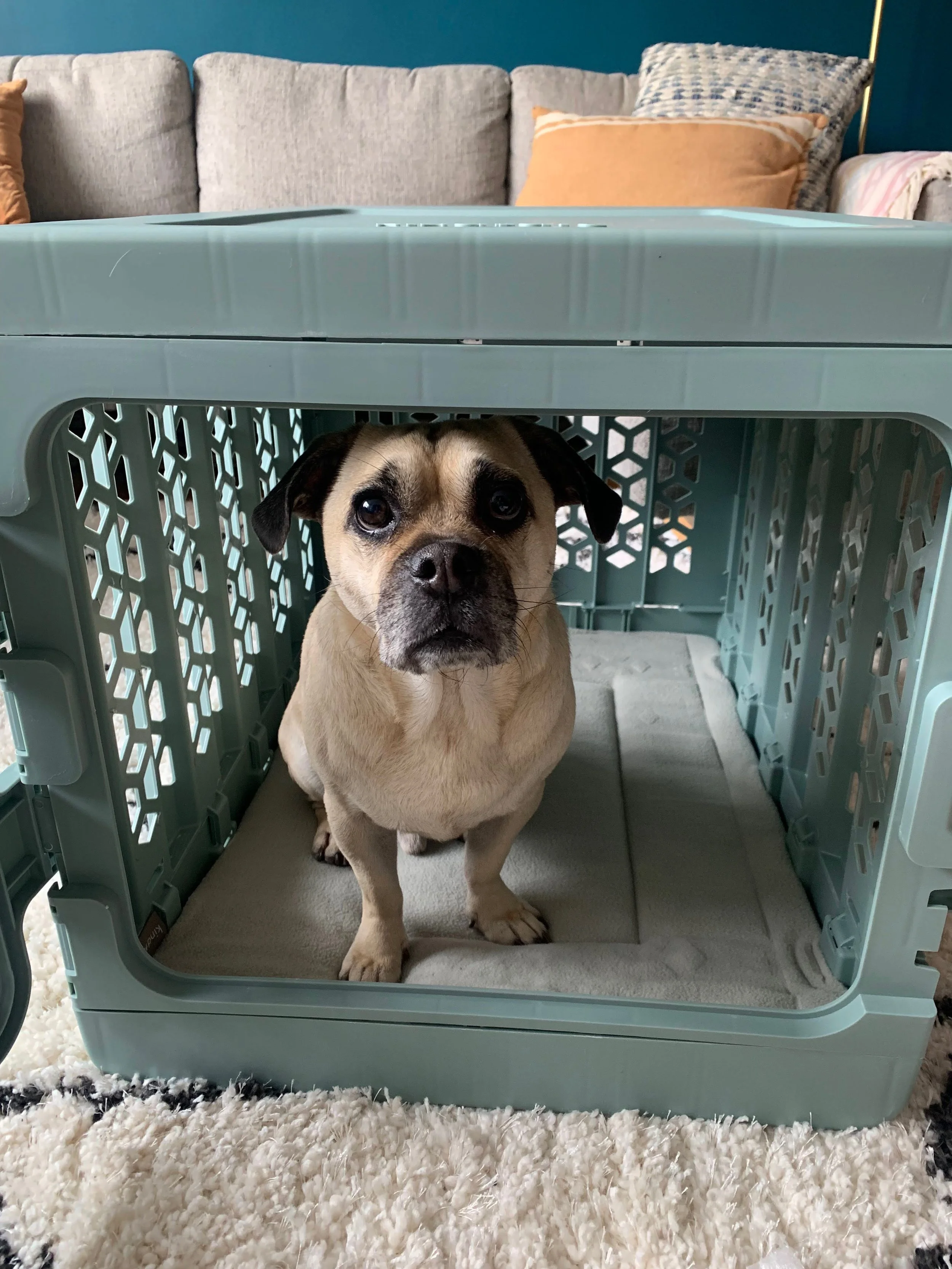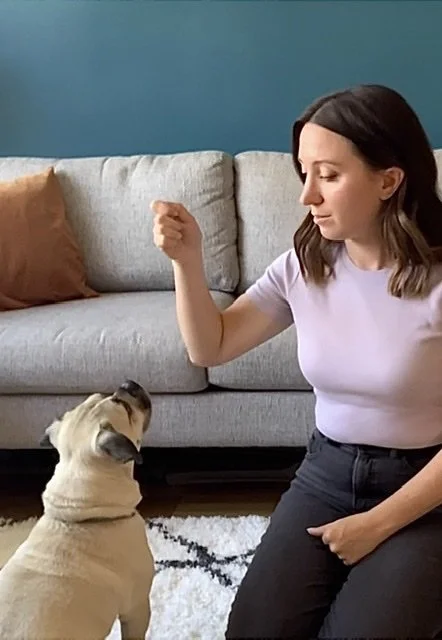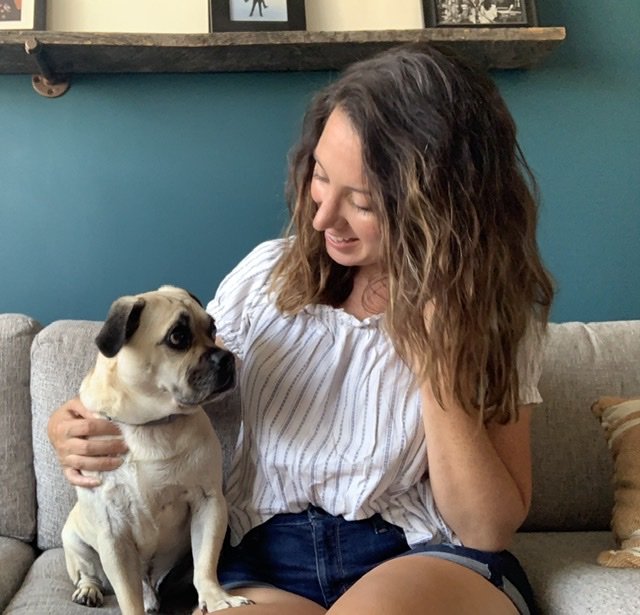I’ve had a lot of conversations with owners about wether or not they should use a crate. Many don’t love the look of a crate, and don’t want to keep their puppy in a cage. But the reality is that when done correctly, the crate is a safe space for your puppy to hang out, that they actually end up loving. It’s their own cozy little den. There are things you need to do to acclimate them, but once done, you have a safe place for them to stay when you aren’t watching them. Not to mention the biggest pro of the crate is that when acclimated correctly your pup should also not want to go to the bathroom in it. (Bonus!!) here are the reasons why I always suggest crate training.
Basic commands to teach your puppy ASAP
It’s never too soon to start training your puppy. Teaching commands is the first way we teach them to listen to us. It helps with their name recognition, and teaches them when they do what is asked, good things happen. It’s also the best way to bond and build confidence in your pup. In order for them to listen, they have to learn how to do the commands first. Here is a list of easy to teach, beginner commands your puppy can learn. I’ve seen an 8 week old pup learn all of these within a week! (With lots of practice and patience of course)
Come-
A good recall is one of the most important commands for your dog. If done properly, it can lead to great off leash hikes and playtime. It is also essential for safety. If you accidentally drop the leash, you can immediately call your dog back vs trying to chase after them. My number one tip for “come” is using your hand as a target. It gives them a definite spot to get to, and not just an arbitrary space you want them to enter. It makes way more sense to the pup.
Sit-
Sit is a stepping stone to a lot of other commands. It’s also the first way to teach them some patience. It’s wonderful to be able to ask your puppy to sit instead of jumping up on you, and then rewarding them with all your love while their paws are down on the floor. It’s also a great way for your pup to say “please”, instead of launching them selves at whatever they wanted. For sit, I like to use a hand motion upward for a hand signal. They look up at your hand and their butt naturally goes down.
Down-
For me, I use “down” for lay down. Not for “off”, when they’re jumping up. Down is important because it is the most calm position your dog can be in. So when they are being too wild, or having a puppy meltdown, you can do some longer downs, and help them calm down from the inside out. Having their body in a calm position, helps their nervous system calm down. I teach down from a sit for most dogs, and I lure them from their nose straight down to their toes. Make sure to not pull that treat away from them, because they will stand up to follow it.
Kiss kiss- puppies are mouthy!!! Like 80% of the time they’re awake, they’re trying to put their teeth on something. I always tell my clients to constantly have toys with them to redirect. If you don’t have a toy, you are the toy. Kiss kiss is a way to change some of those love bites to love licks. Hold the treat in your hand in a loose fist. When they lick your hand they get the treat! This one is great and easy for kids to do as well.
Look-
Puppies have very short attention spans. It takes a lot of work and training before they have decent focus or any ability to hold attention. Look is a way to bring their attention back to you. It’s also a great skill to have down the road in the event they are having any trouble on leash. Having a strong “look” can keep them out of trouble when their attention is going toward something it shouldn’t. (A dog that won’t like them or a chicken bone on the street… the list is long)
These commands are the fundamental building blocks to training any puppy, and are easy enough to learn that even a puppy at 8 weeks can start. For help learning how to teach your puppy these commands, check out my Puppy Basics course. Click on the button below to find out more!
5 Common Mistakes Owners Make When Teaching “Stay”
Stay is one of the hardest commands that we teach our dogs. It’s also one of the most important to get right. Not only is stay a bit abstract for your dog to learn, but it can also be frustrating and boring for both parties involved. Stay is the only command that we teach that means to do absolutely nothing. It can be hard to relay to your dog that what you want from them is to stay completely still. Here are some common mistakes to avoid when teaching your dog stay. If these mistakes are avoided, you will be well on your way to teaching your dog a reliable stay.







